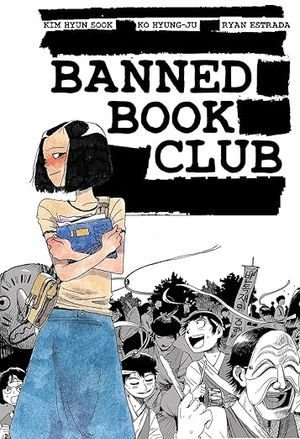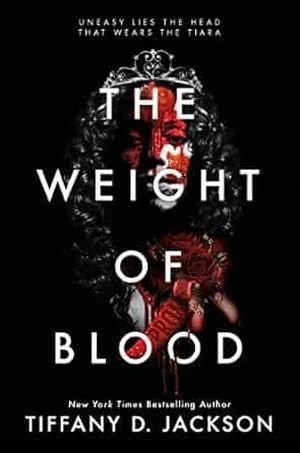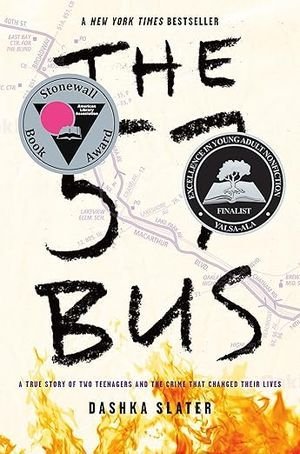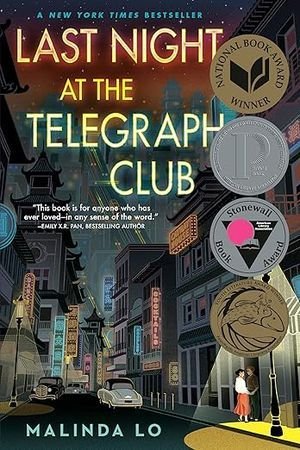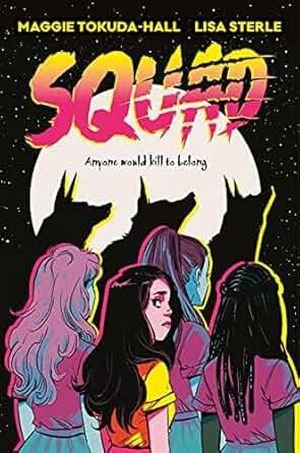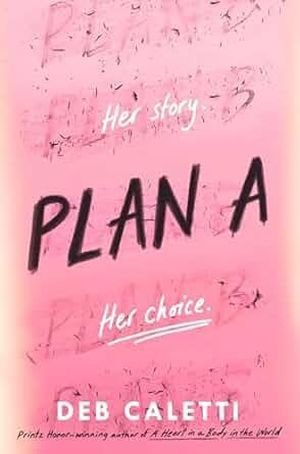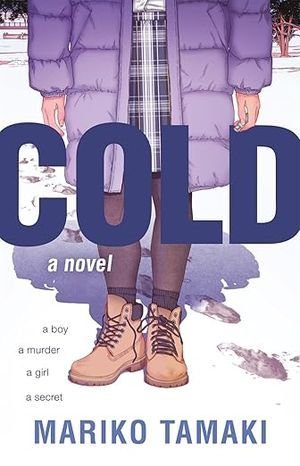This content contains affiliate links. When you buy through these links, we may earn an affiliate commission.
Kelly is a former librarian and a long-time blogger at STACKED. She’s the editor/author of (DON’T) CALL ME CRAZY: 33 VOICES START THE CONVERSATION ABOUT MENTAL HEALTH and the editor/author of HERE WE ARE: FEMINISM FOR THE REAL WORLD. Her next book, BODY TALK, will publish in Fall 2020. Follow her on Instagram @heykellyjensen.
View All posts by Kelly Jensen
Reading banned books is important for myriad reasons. You want to know what is so offensive as to create a moral panic, both historically and in our contemporary climate. You want to support the voices of those whose work is being suppressed, which is almost universally from marginalized communities. You want to lend your support, too, to libraries and bookstores who continue to offer these books to their communities.
But reading banned books alone is not enough to stop censorship. It’s not an action in and of itself that moves the needle in what is an attack on the very people these books represent. To effectively work toward ending book bans requires not only familiarity and passion for the books being removed. It also requires doing something that moves the needle, even if just a tiny bit.
Advocacy and activism might be familiar to you. They may also be two ideas that are outright terrifying, especially if you are someone who considers themselves an introverted bookworm and/or if you’re someone who is terrified by the idea of picking up the phone and making a phone call and/or standing up in front of a group of people to talk.
Here’s the good news: anti-censorship activism doesn’t need to be hard. It doesn’t need to push you beyond your comfort zone–though, of course, finding the courage to push yourself beyond the limits you think you have is great for your own confidence and personal development. But sometimes, the stars aren’t aligned. Other times, your physical, mental, or emotional capacities simply don’t allow for some actions. That’s okay!
It is important, though, to reiterate: reading the books isn’t enough. Even if it sells a book or two, that’s consumerism, rather than activism. In this context, that consumerism is not harmful, but it’s not going to help ensure that students at the local school have access to age- and developmentally- appropriate LGBTQ+ books or books about America’s actual history or books centering Black, Brown, and other marginalized voices. It’s also not going to move the needle for authors whose works are being banned and whose livelihoods are being shrunk. The vast majority of authors who have their books banned do not see sales rise.
What they see is their books being yanked from the hands of readers who need them most.
Two years ago now–we are more than four years into this uphill and unrelenting wave of cruelty toward books centering queer people and people of color–I dug into the incredible data being collected by fellow anti-book ban advocate Dr. Tasslyn Magnusson. There were over 1,557 unique books banned in schools during the 2022-2023 school year, and I found that “only” 70 books were banned 10 or more times at that point. In other words, only 4% of all the banned books that school year were pulled from more than 10 institutions. A total of 161 books were banned at three to nine schools — that’s 10% of banned books. So, 14% of all the recorded books banned in school districts that school year were banned at 3 or more schools.
In other words, most books are being completely forgotten or overlooked: a whopping 86%.
As book bans have continued to increase since, so, too, has the gulf between those books regularly emerging on the “most banned” lists put out by both PEN America and the American Library Association. It’s important to read, highlight, and talk about those top lists. But what happens to the vast majority of books that are also banned and don’t get that kind of attention?
They disappear.
One of this year’s Read Harder 2025 tasks is to read a banned book and complete a task from one of Book Riot’s “How to Fight Book Bans” guides. For the first part of this task, I’m including a roundup of banned books here that fall outside the lists you’ve seen of “top” banned books. You can absolutely read those (and they’re DAMN GOOD!). But I want to spotlight some of the titles that maybe you’re less familiar with being banned because they’re “lucky” enough to “only” be banned in a few libraries. You will notice this is primarily YA books. That’s because YA books are the bulk of books being banned.
As for the second part of the task–the one where you take action–the good news is that at the start of 2025, I put together a list of 56 small tasks you can take to fight book bans. This guide is what I’m working from in creating this post, as it pulls ideas from previous iterations of anti-book ban guides written and published here. The hope is, of course, that once you do one task, you’ll see the value it has and either continue to do that action–for example, writing regular letters to your library board about either issues you’re seeing locally and/or praising them for doing things like purchasing LGBTQ+ books and putting them on display–or moving onto another task to expand your advocacy and activism. You’ll see that there’s even a handy checklist for the tasks in the post. Each book recommendation will be followed by a pair of tasks from this list; if none of the tasks in this post resonate, visit the larger list and pick from there.
Banned Book Club by Kim Hyun Sook and Ryan Estrada, illustrated by Hyung-Ju Ko
Let’s begin with a work of graphic nonfiction that has too many parallels to America’s contemporary censorious culture. In 1983, Kim Hyun Sook thought going to college would open up her world–she’d convinced her very traditional mother that studying Western Literature in academia would be good for her (and she herself was grateful to get out of having to work in the family’s restaurant).
The problem is that this was during South Korea’s Fifth Republic. It was an era marked by relentless censorship and cruelty inflicted upon the country’s citizens. So when Hyun Sook is invited to take part in a book club at school, she doesn’t expect what this actually would entail–hiding in a dark basement with fellow book lovers in order to read the books deemed illicit by the Regime.
This comic explores anti-intellectualism, censorship, and the real consequences of authoritarianism. Yes, of course, a book about book banning like this has been banned in America.
Two Actions To Take:
- Find out who represents you in your state legislature and in the US House of Reps and Congress. Put their name, contact information, and the committees on which they chair or sit somewhere handy. This might be your phone or a digital sticky note on your laptop.
- If you are having local elections this year or know you will early next year, develop a spreadsheet or word-processing file documenting who is running for seats on your local/county school and library boards. Make it a sharable guide that includes links to each candidate and some kind of system indicating whether or not they can be considered pro-library or pro-public education candidates (red for no, yellow for unsure, and green for yes is a nice easy system). These two posts can help you: how to build a voters guide for school board elections and how to build a voters guide to public library elections.
The Weight of Blood by Tiffany D. Jackson
Maddie’s been passing for white her entire life and forced to keep up the act thanks to her father. She’s always been the target of bullying at her small high school, but when her secret is revealed, things go from bad to worse.
A viral video showcases the school’s deep racist roots, and student leaders decide one way to fix their reputation is to host their first integrated prom. Too bad not everyone will make it out of the prom alive . . . and, of course, those who do make out are pointing the finger at Maddie.
If you’re a horror lover, you’ll appreciate this remix of Carrie.
Two Actions to Take:
- Write a letter to your library board complimenting something about the work being done in your public library. Don’t overthink this. You can say you borrowed a book you loved because you saw it on display. You can simply say that library workers do a fantastic job of selecting material that meets the needs of your community. If you work in a library, advocate for making it easy for your users to advocate for you (examples here and here).
- Learn about the most rampant censorship issue in America, prison censorship. Learn about how prison censorship is related to America’s legacy of slavery, then read these three pieces from people experiencing incarceration to learn how important access to books is in prison.
All Access Readers read on more banned books and actions to take for each.
Kelly is a former librarian and a long-time blogger at STACKED. She’s the editor/author of (DON’T) CALL ME CRAZY: 33 VOICES START THE CONVERSATION ABOUT MENTAL HEALTH and the editor/author of HERE WE ARE: FEMINISM FOR THE REAL WORLD. Her next book, BODY TALK, will publish in Fall 2020. Follow her on Instagram @heykellyjensen.
View All posts by Kelly Jensen
The 57 Bus: A True Story of Two Teenagers and the Crime That Changed Their Lives by Dashka Slater
A true-crime story involving two teenagers: one a black teen from one of the poorest parts of Oakland, and one a white gender nonconforming middle class teen who attended a private high school. This complicated, complex story explores victimhood, guilt, and the justice system from myriad nuanced angles.
Two Actions to Take:
- Write a letter to your school board complimenting something about the work being done in your public school. This can be personalized if you’re a member of the school through children. If you’re not part of the school community personally, use this as an opportunity to highlight data or facts—you appreciate that the school has a full-time librarian in each school or you are impressed with increased test scores over the last few years. Note: a bonus step here is if your school does not have a full-time librarian or a librarian at all, this is something you can ask administration about. What do they plan to do to get a librarian in the school? What hurdles are in their way? Who do you need to write a letter to to help them?
- Pick one friend or more with whom to attend a school board meeting. Sign up for public comment and share one thing you think is being done well at your public school. If you know there is something contentious happening in the school related to books or the library, make that the meeting you attend. You can use this Show Up, Stand Up, Speak Up Canvas.
Cool For The Summer by Dahlia Adler
Adler’s queer romance clocks in at just a touch over 250 pages, but I’m including it because this one is fun. The story follows Lara, who believes she has everything she could want — friends, a fun job, and the cute boy — except now, she cannot stop thinking about the cute girl she spent time with during the summer, Jasmine, who just so happens to walk into Lara’s high school, creating a swell of confusing feelings.
Two Actions to Take:
- Find your most local newspaper and write a letter to the editor about your public library. Each paper’s requirements for the letter, as well as where to send it, should be on the main page for opinions/editorials. Bonus: if you have a good source of local journalism, spend the money to subscribe to it. Local news means local people are covering issues that matter to you.
- Find out whether your local library has a Friends of the Library group and find out how to get involved. Friends groups raise funds for libraries and are a way to get involved locally if you do not have the ability to run for a more demanding role, such as a library board trustee. If joining the Friends is not possible for you, attend an event hosted by them. Often, your local library book sale is a Friends program.
Last Night at the Telegraph Club by Malinda Lo
Fall in love with this historical YA book about Chinese-American Lily falling for white Kath during the 1950s in San Francisco. It’s an era of change and upheaval, and it’s an era where the Red Scare emerges to put those who are “other” into their places.
Told in a few timelines, this family story is about immigration post-Chinese Exclusion, about the realities of being called a Communist, and about the ways in which living up to parental and cultural expectations in a changing world means putting your true self in the dark.
Note that this book has been banned across every single public school in South Carolina.
Two Actions To Take:
- Learn about the history of book banning in the United States. You can read a full book about it, read an article about it, or find a video that interests you. Some topics to get you started on the journey: the first banned book in the US, The New English Canaan; the United Daughters of the Confederacy; the history of comic censorship; Norma Gabler’s book banning crusade in the ’80s; the story of Ulysses and its banning (start with the Wikipedia entry then go down the link list!); and so forth. Bonus points if you use a library database to research the topic.
- Request that your local library purchase a new or upcoming book by a BIPOC or LGBTQ+ author. Most libraries have request forms at their service desk or online. Don’t see one? Ask. Libraries are excited for this kind of patron engagement.
Squad by Maggie Tokuda-Hall and Lisa Sterle
When Becca moves to a new, small, posh town, she’s immediately taken in by the popular crowd and ditches the lone fat girl at school who she had a quick connection with (that girl wasn’t cool enough). Soon, Becca learns this elite girl gang has a secret: under the full moon, they transform into werewolves who set out to destroy boys who are too eager to take advantage of girls. All seems well at first, as they plan their attacks outside of Piedmont, but when Becca accidentally destroys the boyfriend of one of her fellow girl gang members, their days are numbered.
This is Mean Girls meets Heathers meets Teen Wolf, and it will become clear why Becca acts as she does. Revenge is best served by teen girls.
Two Actions to Take:
- Attend an in-person or online event about banned books (pre-recorded is fine!). Great places to find these are your local library for in-person, or through places like Authors Against Book Bans, PEN America, EveryLibrary, and The Author Guild for online offerings. You’ll see events increase around National Library Month (April) and Banned Books Week (in 2025, this is October 5-11). One recommendation if you want a place to begin is “Banned Books and Libraries Under Attack: The Fight for Intellectual Freedom in our Communities,” a recorded panel from Cleveland State University featuring an array of well-informed experts.
- Write a letter to your state representatives about the importance of public libraries, citing data that emphasizes how well-regarded and respected these institutions are. Ask your representatives in that letter to support legislation that strengthens these institutions. Some data you’ll find useful include that from Book Riot and EveryLibrary’s “Parental Perceptions of Libraries” survey from fall 2023, as well as 2024 research from the Knight Foundation.
Plan A by Deb Caletti
Ivy is pregnant. This is not a good position to be in for most teenagers, but it’s especially not good in small town Texas where abortion isn’t an option and where she can easily become the subject of unmitigated harassment and judgment. So now instead of spending the summer as she planned, Ivy and her boyfriend Lorenzo are going to take the wildest road trip of their lives. They’re heading to Rome, Oregon, where Ivy can be with her grandmother and legally obtain an abortion.
Along the way, the couple will make the best of a bad situation. There will be diners, drive ins, and dives, and there will be plenty of discovery about what it is to be pregnant in a country hellbent on destroying reproductive rights.
Two Actions to Take:
- Learn about Brooklyn Public Library’s Books UnBanned program and share it with your friends and/or any young people in your life. Anyone can get a card through the program, expanding access to materials. This is not the solution to book bans, but it provides vital help to not only those struggling with book bans locally but also those who may be unable to get to a local library and/or whose libraries are not as well-funded as Brooklyn’s.
- Spend an hour or more learning about news literacy from the News Literacy Project. Amping up your knowledge of various forms of literacy is something you can never do enough of, and their resources are especially good for helping contextualize where, why, and how book censorship news is difficult to find or understand. Bonus: sign up for their newsletters to get educated every week.
Cold by Mariko Tamaki
Georgia wants to know why Todd died. Todd’s ghost is still around and questioning all of the choices he made in his life that led him to his untimely death. Even though Georgia never knew him, she becomes obsessed with him and what happened. . . .and she begins to wonder if she knows something she was not supposed to know about him.
Two Actions to Take:
- Locate your library’s collection management policy and/or their book challenge information. If it’s not on their website, go in person or make a phone call to ask to see them. If your library doesn’t have one, encourage them to get one going. If you’re a library worker, the task for you is to see when your policy was last updated. If it’s more than two or three years old, it’s time to make an update. The world of book and library challenges has changed too much in this amount of time to rely on old policy. Here are some ideas.
- Get to know some of the youth-led groups doing anti-censorship work throughout the country and support them by sharing their stories or work with your own social networks. Among the groups you may want to research include Diversity Awareness Youth Literacy Organization (DAYLO) and their youth advocacy guide; Students Engaged in Advancing Texas (SEAT); Golden State Readers; the Freedom to Read Teen Ambassadors; and Students Protecting Education.
To round out this look at just a sliver of banned books you should pick up and actions you should take to support literary access for all, a collage of picture books that have been banned for your reading consideration:
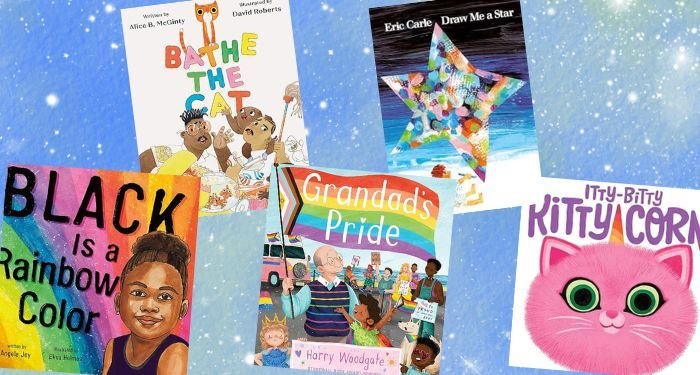
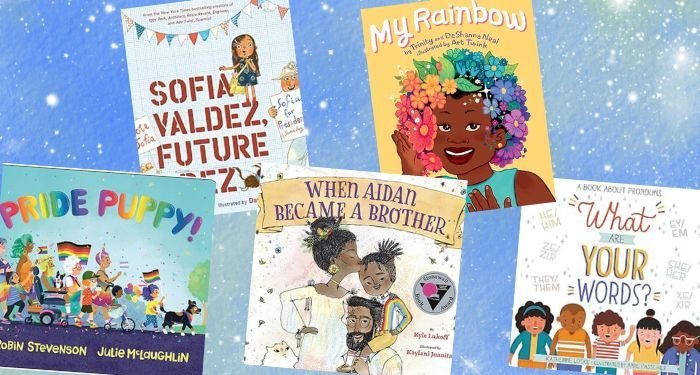
From left to right, top to bottom:
- Bathe the Cat by Alice B. McGinty and David Roberts
- Draw Me a Star by Eric Carle
- Black is a Rainbow Color by Angela Joy and Ekua Holmes
- Grandad’s Pride by Harry Woodgate
- Itty-Bitty Kitty Corn by Shannon Hale and LeUyen Pham
- Sofia Valdez, Future Prez by Andrea Beaty and David Roberts
- My Rainbow by DeShanna Neal, Trinity Neal, and Art Twink
- Pride Puppy by Robin Stevenson and Julie McLaughlin
- When Aiden Became a Brother by Kyle Lukoff and Kaylani Juanita
- What Are Your Words? by Katherine Locke and Anne Passchier
Join All Access to read this article
Get access to exclusive content and features with an All Access subscription on Book Riot.
- Unlimited access to exclusive bonus content
- Community features like commenting and poll participation
- Our gratitude for supporting the work of an independent media company
One More Action to Take:
Sign up for the Literary Activism newsletter. Already signed up? Forward a copy to a friend and tell them why they should sign up.


